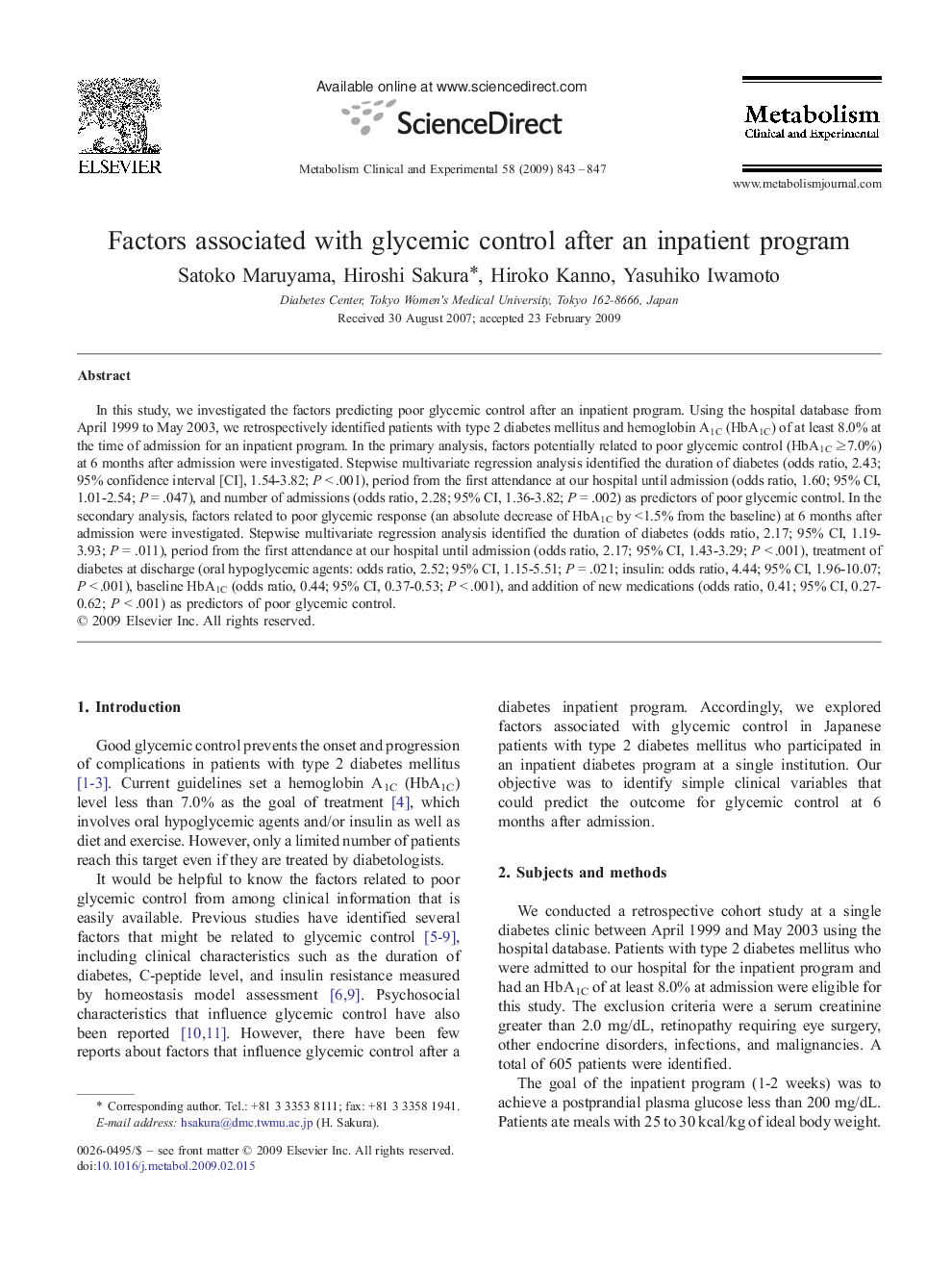| کد مقاله | کد نشریه | سال انتشار | مقاله انگلیسی | نسخه تمام متن |
|---|---|---|---|---|
| 2806895 | 1157138 | 2009 | 5 صفحه PDF | دانلود رایگان |

In this study, we investigated the factors predicting poor glycemic control after an inpatient program. Using the hospital database from April 1999 to May 2003, we retrospectively identified patients with type 2 diabetes mellitus and hemoglobin A1C (HbA1C) of at least 8.0% at the time of admission for an inpatient program. In the primary analysis, factors potentially related to poor glycemic control (HbA1C ≥7.0%) at 6 months after admission were investigated. Stepwise multivariate regression analysis identified the duration of diabetes (odds ratio, 2.43; 95% confidence interval [CI], 1.54-3.82; P < .001), period from the first attendance at our hospital until admission (odds ratio, 1.60; 95% CI, 1.01-2.54; P = .047), and number of admissions (odds ratio, 2.28; 95% CI, 1.36-3.82; P = .002) as predictors of poor glycemic control. In the secondary analysis, factors related to poor glycemic response (an absolute decrease of HbA1C by <1.5% from the baseline) at 6 months after admission were investigated. Stepwise multivariate regression analysis identified the duration of diabetes (odds ratio, 2.17; 95% CI, 1.19-3.93; P = .011), period from the first attendance at our hospital until admission (odds ratio, 2.17; 95% CI, 1.43-3.29; P < .001), treatment of diabetes at discharge (oral hypoglycemic agents: odds ratio, 2.52; 95% CI, 1.15-5.51; P = .021; insulin: odds ratio, 4.44; 95% CI, 1.96-10.07; P < .001), baseline HbA1C (odds ratio, 0.44; 95% CI, 0.37-0.53; P < .001), and addition of new medications (odds ratio, 0.41; 95% CI, 0.27-0.62; P < .001) as predictors of poor glycemic control.
Journal: Metabolism - Volume 58, Issue 6, June 2009, Pages 843–847